Rosh Hashanah Happy Biblical New Year and Guarding the Month Aviv
The Command to Guard the Month of the Aviv
First Day of the Month of the Aviv and the head of the Biblical New Year–Rosh Hashanah; Month of Nisan in Jewish circles.
We must first understand what it is we’re guarding. Why is it important? What it’s composed of.
We find in Exodus that the month of the Abib is the start of the biblical year for us; the head of the year; Rosh Hashanah:
” This month (Hebrew=chodesh; also new moon) shall be unto you the beginning of months (Hebrew=Rosh chodeshiym=months or seasons); it shall be the first month of the year to you” (Exodus 12:2; KJV).
Abba commanded us to:
“Observe (Hebrew=shamar; to keep; to guard) the month of Abib and keep (Hebrew=asah; to do) the passover (Hebrew=pesach) unto YHVH, thy Elohim: for in the month of Abib YHVH thy Elohim brought thee forth out of Egypt by night” (Devariym 16:1; KJV).
How to Guard the Month of the Aviv
So how should we keep the Month of the Aviv? (See our post on observing and guarding the month aviv.) First order of business is to prepare:
- Pray and consider maybe a day or two of fasting in preparation for receiving the upcoming Spring Feasts of YHVH. Getting in the right frame of Spirit and mind is essential for the upcoming Holy Days to be as meaningful as they possibly can be for us.
- Start cleaning out the leaven from our homes.
- Purchase unleavened bread products, in particular matzah.
- Arrange for the time off from work for the first and last day of Unleavened Bread.
- Hosting celebrations might be a little challenging this year given the situation the world is facing now with the Coronavirus pandemic. But generally we would look to having at the very least a commemorationof what is typically referred to in Christian circles as the Last Supper. Some prefer to commemorate the time with a traditional Jewish Seder or formal dinner. So planning is something we might want to begin right now.
- First Fruits is generally the time-framewhen we send financial support to those ministries that feed us. So it may be something to begin praying about.
Both calendars are in sync for the month of Aviv (aka Nisan)
- Passover–4/8/2020–This year again falls on Wednesday (Judaism keeps 2 Passovers–add 4/9/2020)
- Feast of Unleavened Bread–4/9–15/2020
- Day of Firstfruits–4/12/2020 (Sunday–1st Day of the Week)
- We begin the count to Shavuot on the Day of Firstfruits. (Judaism begins the count towards Shavuot this year on Day 2 of what they call Passover which would actually be day 2 of FUB for us.)
The difference being that Shavuot or Pentecost will occur at 2 opposing times on our calendars: For us Shavuot will be Sunday, 5/31/2020; for the Jewish Calendar it will be Thursday, 5/29/2020.
It is important to know when the count towards Shavuot begins so one will keep it on the correct day–Thursday or Sunday.
Closing Thoughts and Reflections
We have the opportunity during these difficult times which happens to be occurring during the Month of the Aviv, to make the most of this Spring Feast season. Many of us are sheltering in place in our homes in what many see as self-quarantine. So instead of focusing on the situation that the world seems to be obsessed by these days, let us use the time to get closer to Yah as we recognize that which Yeshua did for us; the elimination of sin from our lives; and the work of the Ruach HaKodesh operating in our lives.
Be joyous yet solemn. Sound the shofar. Meditate. Pray without ceasing. Study every passage related to the history and instructions YHVH gave us for Passover and study the Passion story. Ensure we look at this thing from a Yeshua-focused perspective while being obedient in our keeping of the Spring Feasts.
Shalom and Blessings
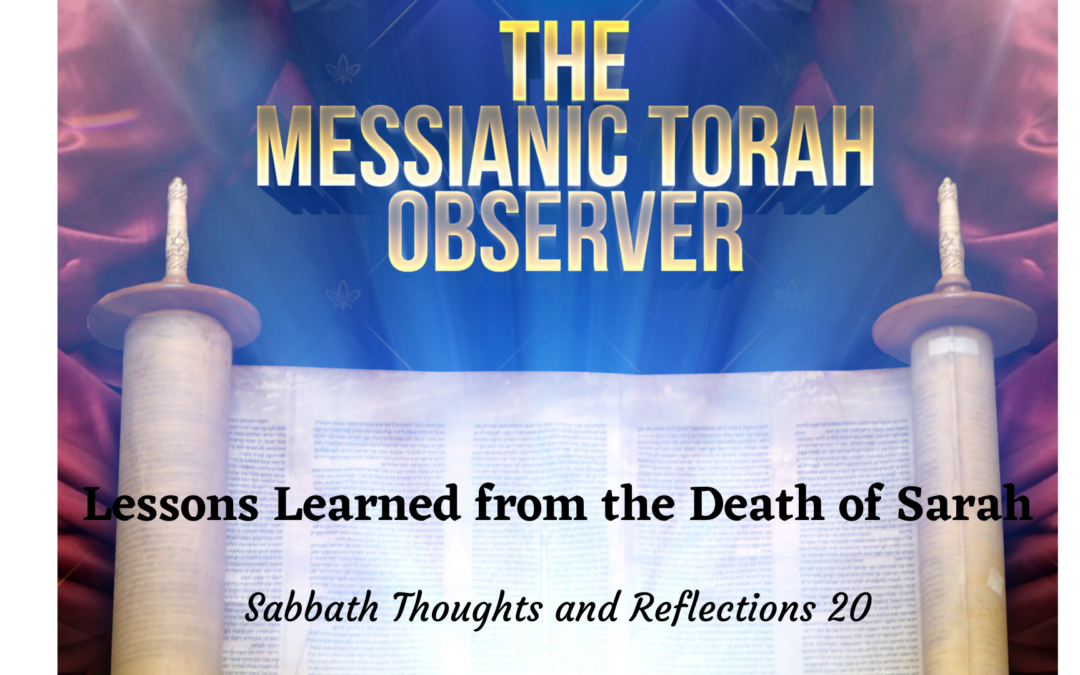
Lessons Learned from the Death of Sarah-STAR-20
In our Torah Reading for this Sabbath, we read of the death of the Matriarch of our Faith, Sarah. And in our discussion, we will explore the eternal truths associated with this sad, but important story. We will touch upon the themes of loving our wives; being a sojourner in this world; burial versus cremation when caring for a deceased loved one; as well as we’ll examine many of the historic and cultural elements that are attached to this beautiful Reading. Shalom and Welcome.
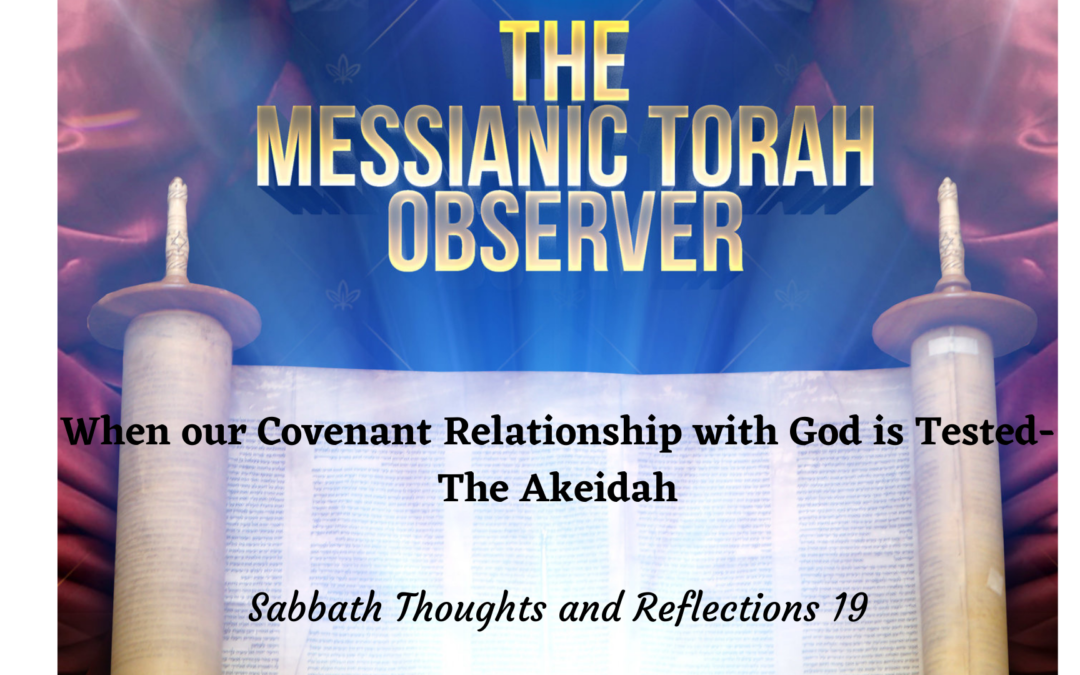
When our Covenant Relationship with God is Tested-Akeida-STAR-19
This week’s Torah Reading is that of the Akeidah or the binding of Isaac. It is a story about obedience, trusting faith and the ultimate goal of the Abrahamic Covenant. We will also explore the ramifications associated with God’s testing of those whom He loves. This is one of the most important Torah Reading Discussions of the Torah Reading Cycle. Come fellowship with us and let’s discuss the Eternal Mysteries of Yah’s Eternal Words of Life.
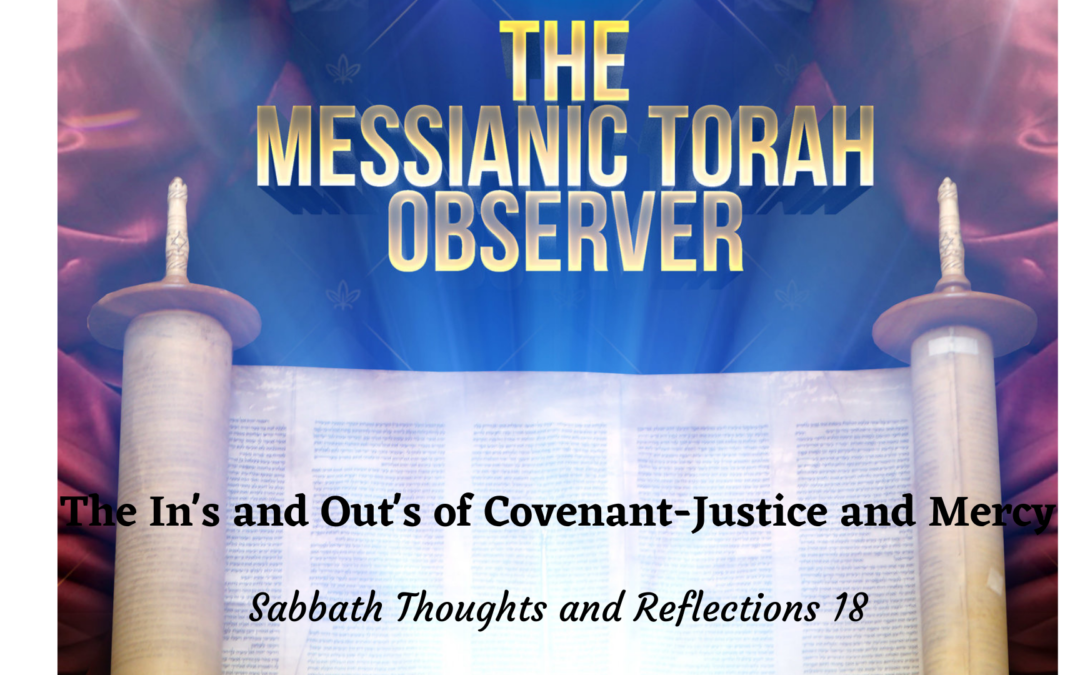
The In’s and Out’s of Covenant-Justice and Mercy-STAR-18
Many of us view covenant as an exclusive club or culture that belongs to God’s elect and those who find themselves outside of covenant are doomed to be outside of God’s blessings and provision. But the truth of the matter is that God operates in ways that are often foreign to us and that defy how we believe God should operate. In today’s Torah Reading discussion, we discuss the in’s and out’s of covenant and how God’s justice and mercy define how He will interact with those who are in covenant versus those who are outside covenant.
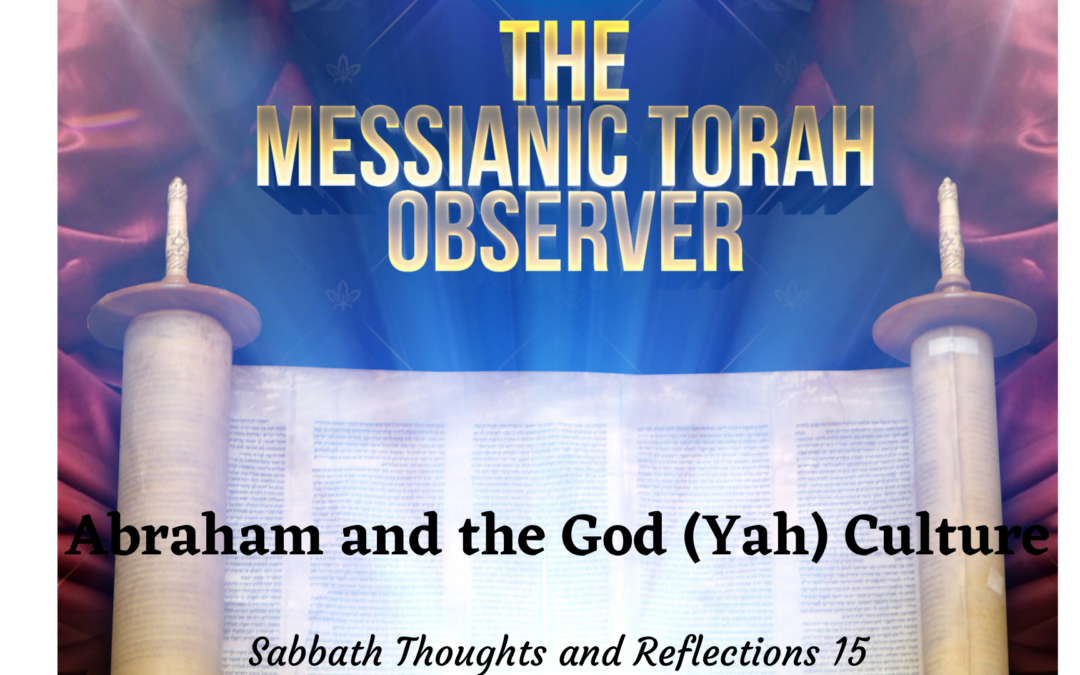
Abraham and the God (Yah) Culture–Sabbath Thoughts & Reflections 15
This week’s Torah Reading touches on a number of relevant themes that include righteousness, justice, reverence, hospitality, boldness, laughter, theophanies and covenant. But the one theme that stands out most is culture. In this installment of TMTO’s Sabbath Thoughts and Reflections, we explore each of these themes, in particular the theme of culture. What is the God Culture/the Hebrew Culture? What was Abraham’s role in that Culture? And what does that culture have to do with us today?
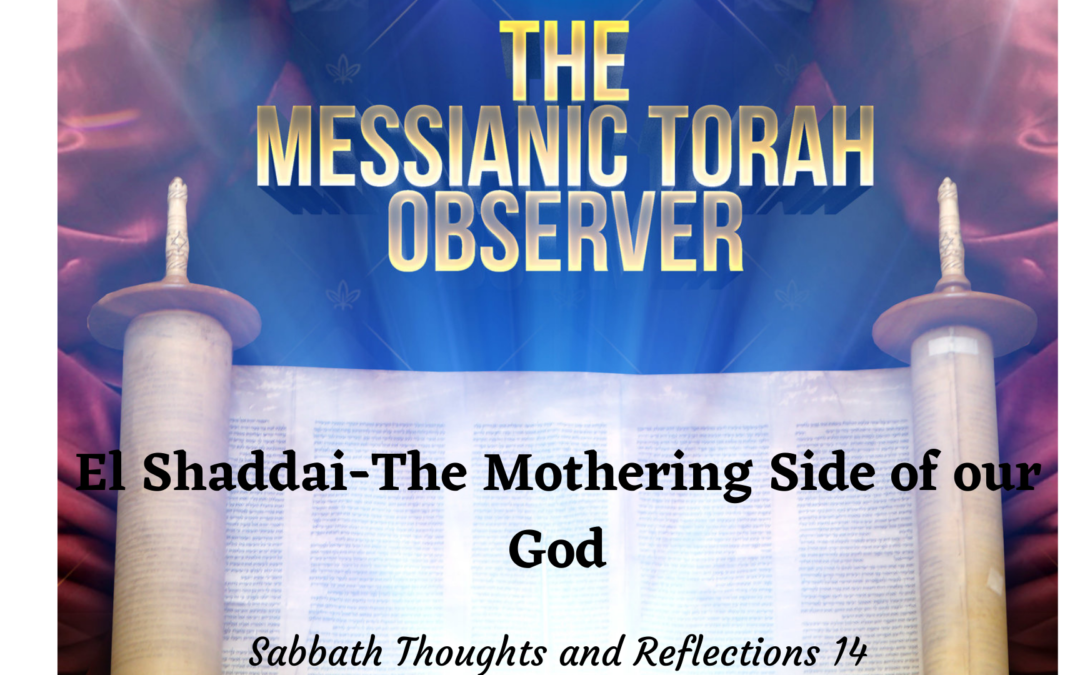
El Shaddai-The Mothering Side of our God-STAR 14
Seems we have been indoctrinated to view God exclusively from a “Fathering” perspective. But could one of God’s revealed names be indicative of a “Mothering” side to the Creator of the Universe? In this installment of TMTO we explore and discuss the power and meaning of El Shaddai.
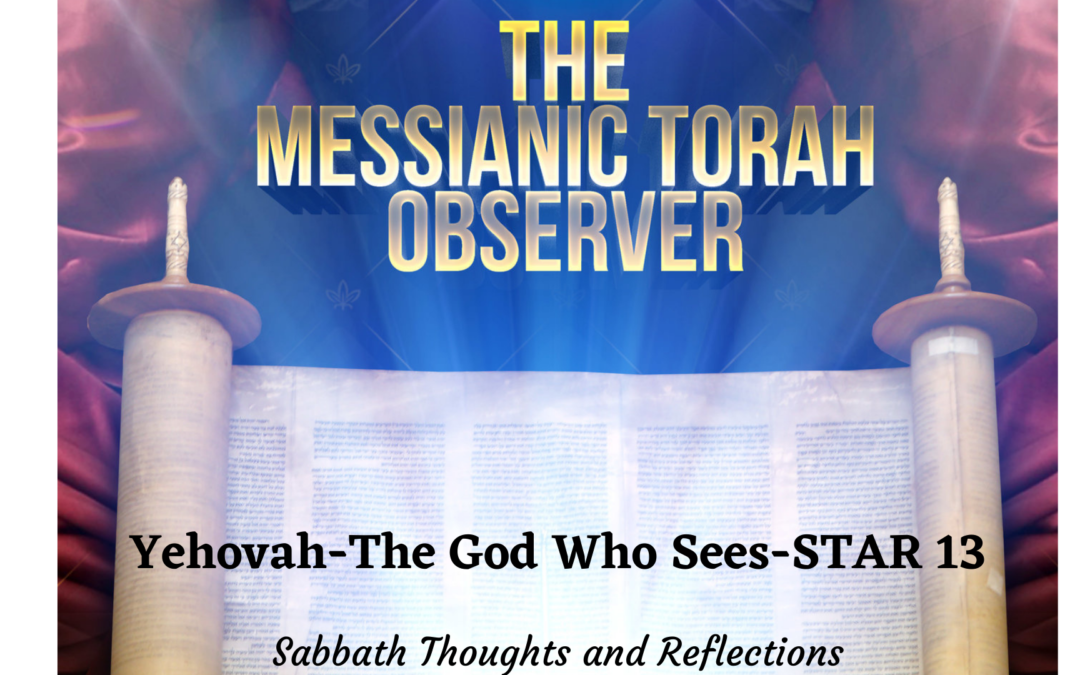
Yehovah-The God Who Sees-STAR 13
In our reading today, we’re led to think and reflect on the themes of:
● Trusting Faith
● Respect
● Patience & Perseverance
● Responsibility
● Honor
● The Spirit Realm Intersecting with the Physical Realm
● Promise
● Sonship
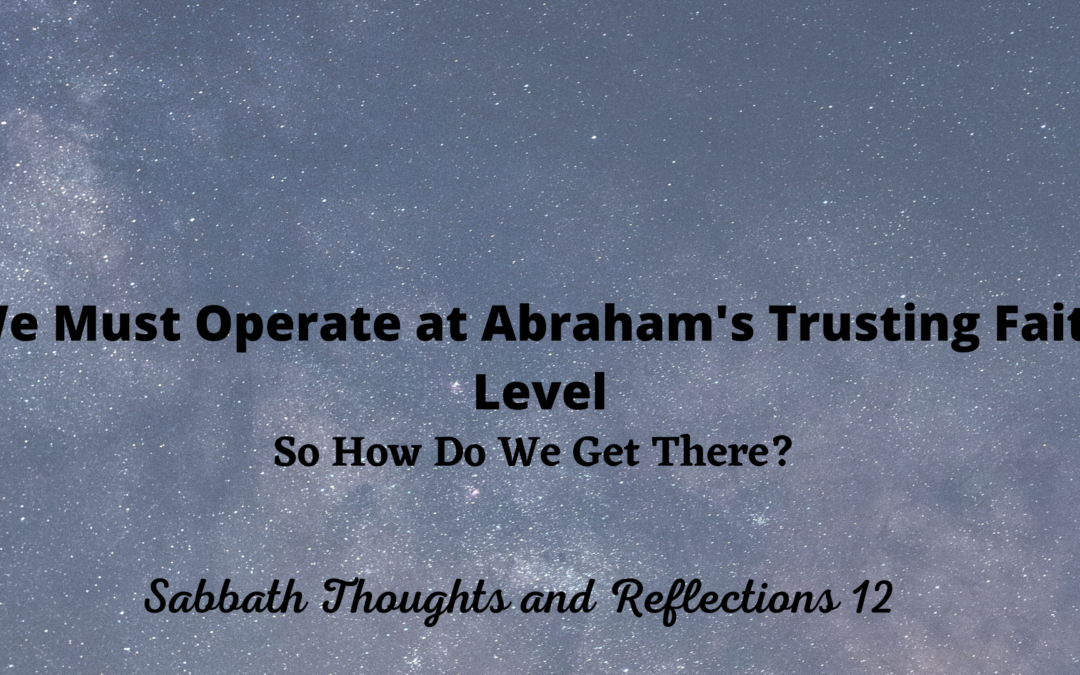
We Must Operate at Abraham’s Trusting Faith Level-So How Do We Get There? STAR 12
Today’s Torah Reading discussion will touch upon a great many themes that include operating in a trusting faith; the righteousness of Elohim; obedience to Yah’s instructions; divine protections and rewards; and the wisdom of challenging or questioning Yehovah.
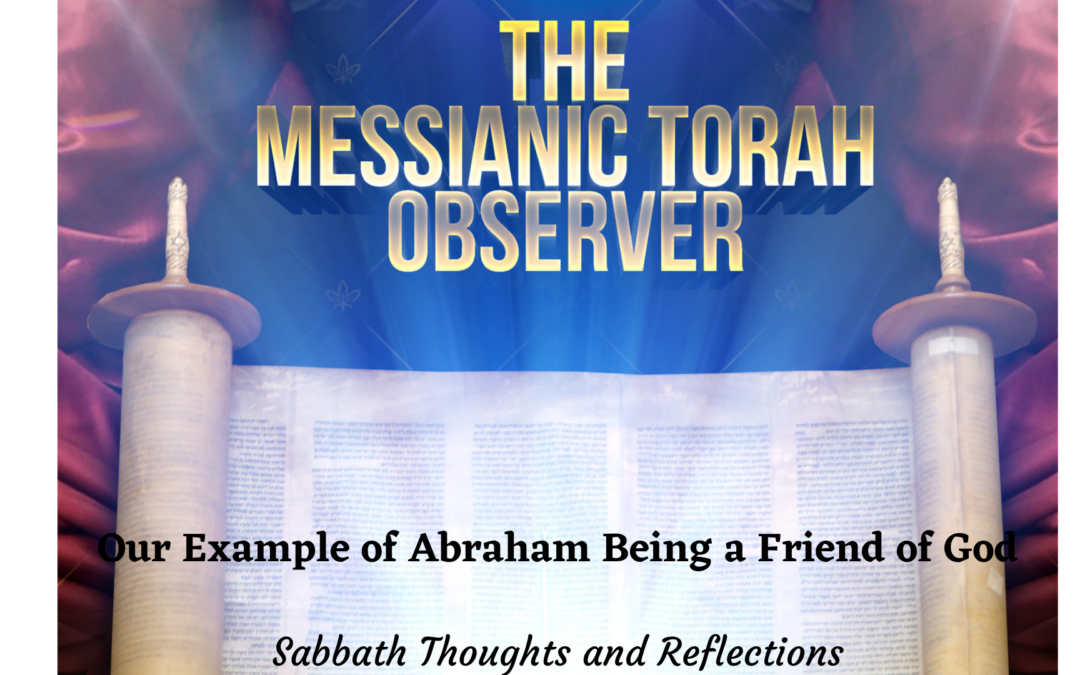
Our Example of Abraham Being a Friend of God-STAR-11
The circumcised heart of an individual—contrite and broken and humble in spirit—is the one thing that captures Yah’s attention and places him or her in contention for being chosen as His friend and ultimately His child. If our heart ain’t right, we ain’t going to be chosen to enter into an obedient covenant relationship with Yehovah, much less a friend or child of His.
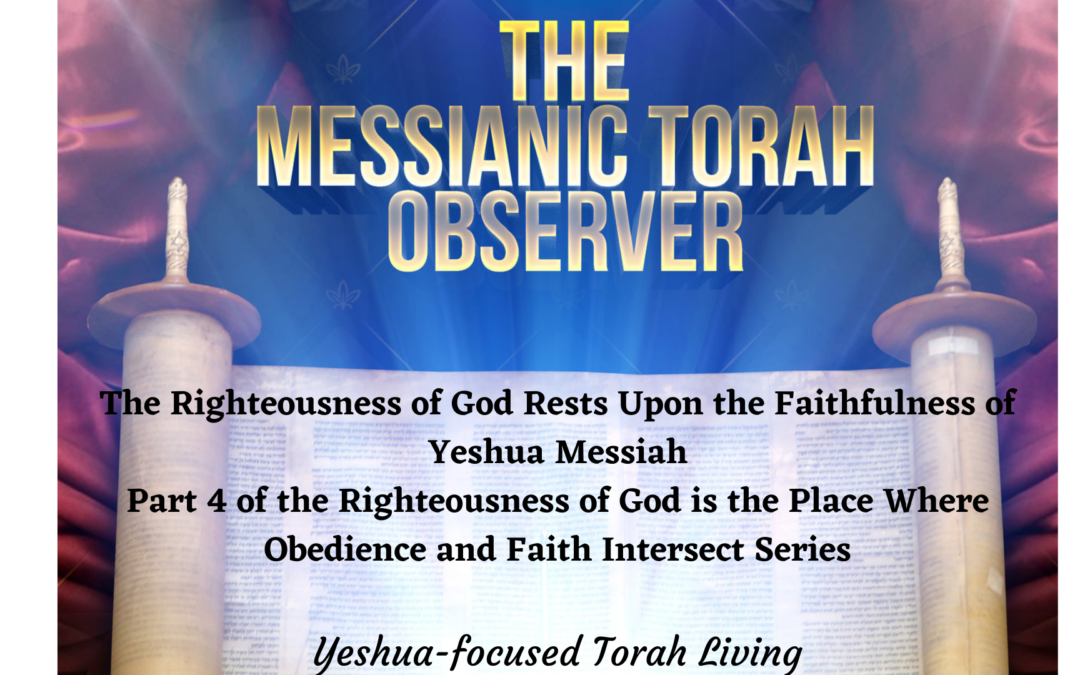
The Righteousness of God Rests Upon the Faithfulness of Yeshua Messiah
Indeed, the Righteousness of God is the place where faith and obedience come together through the Person and Ministry of Yahoshua Messiah. His faithful obedience to Yehovah becomes our faithful obedience, even unto death.
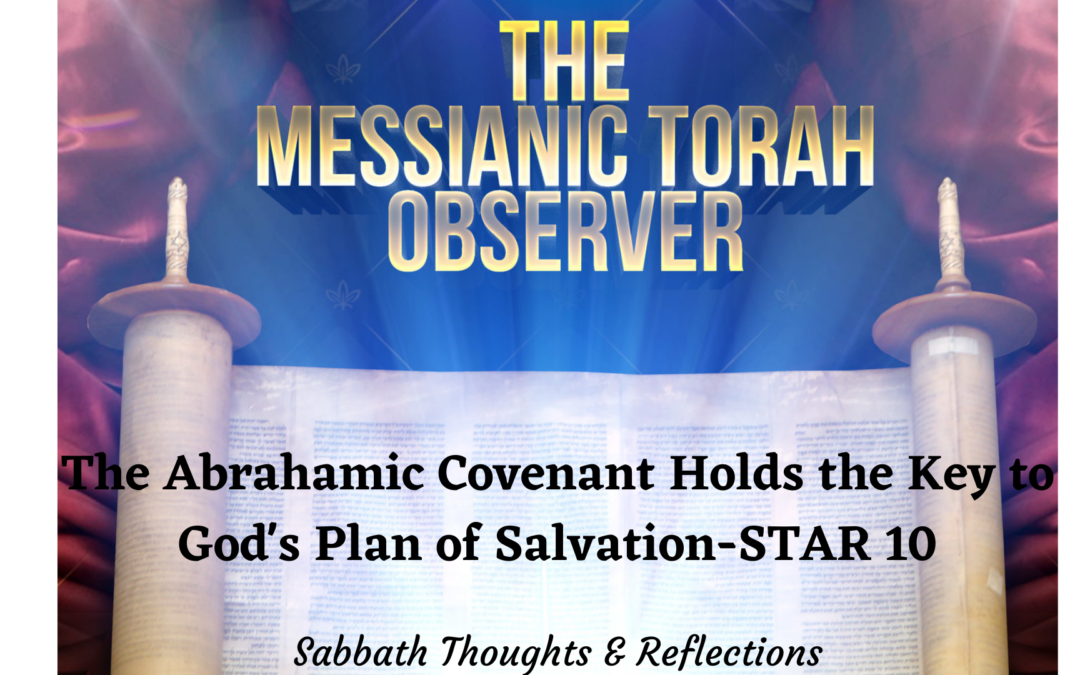
The Abrahamic Covenant Holds the Key to God’s Plan of Salvation-STAR 10
The Abrahamic Covenant is the essential element of this week’s Torah Reading. We find in our discussion that the Abrahamic Covenant holds the key to God’s Plan of Salvation. Shabbat Shalom.


0 Comments